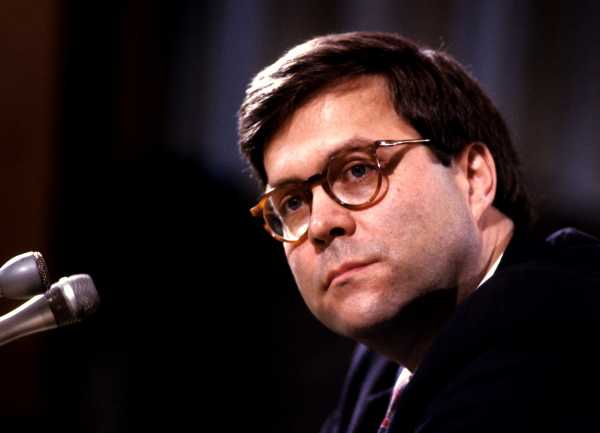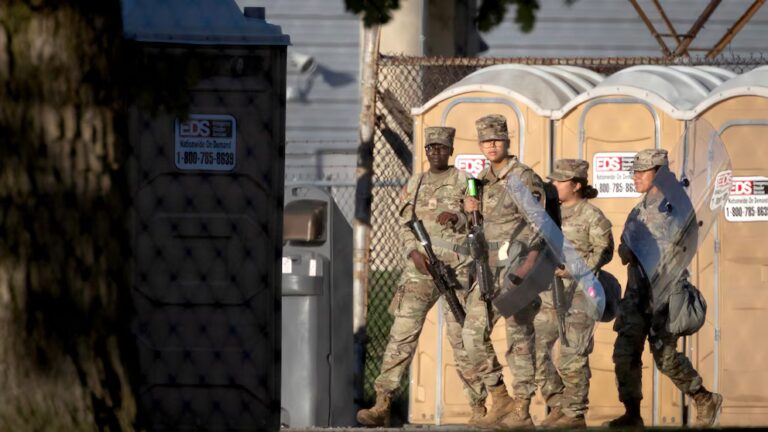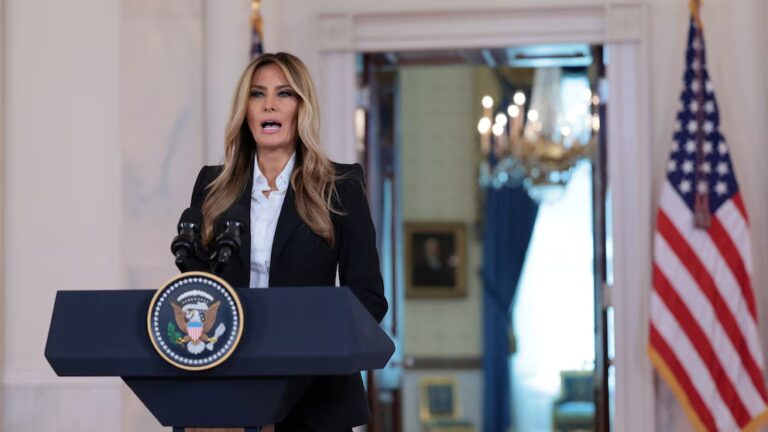
President Donald Trump’s attorney general nominee, Bill Barr, blasted the Mueller investigation’s obstruction of justice inquiry in a private memo to the Department of Justice this June.
The Wall Street Journal first reported on the existence of Barr’s memo Wednesday night, and the New York Times posted the full 19-page memo on Thursday. In it, Barr admits that he is “in the dark about many facts,” but went on to make a lengthy argument that special counsel Robert Mueller appeared to be “proposing an unprecedented expansion of obstruction laws” that he claims could have “grave consequences” to the executive branch.
The news poses the prospect that major changes may soon come to the Mueller probe, which Barr will oversee if he is confirmed. Barr clearly seems inclined to rein in the obstruction aspect of the investigation, and to disapprove any attempt to subpoena Trump to answer questions on the topic. “Mueller should not be permitted to demand that the President submit to interrogation about alleged obstruction,” Barr writes.
The news also may make it harder for Barr to get confirmed in the first place. The Senate is expected to consider his nomination in January, and he will certainly be questioned in detail about his opinions here. (Barr has served as attorney general before, during George H.W. Bush’s administration.)
It does remain theoretically possible that Barr could change his view if he is confirmed and then briefed about the investigation. Asked about the memo at a press conference Thursday, Deputy Attorney General Rod Rosenstein said that it reflected Barr’s “personal opinion.”
He added, “Our decisions are informed by our knowledge of the actual facts of the case, which Mr. Barr didn’t have” — seemingly implying that there’s a more substantial basis to investigate Trump for obstruction than Barr knows about.
What Barr argued in the memo
The memo, dated June 8, 2018, is addressed to Deputy Attorney General Rod Rosenstein and Assistant Attorney General Steve Engel — though the Wall Street Journal’s Rebecca Ballhaus reports that Barr also gave a copy to “the top lawyer representing the White House in the investigation.” The subject line is, “Mueller’s ‘Obstruction’ Theory.” (You can read it at this link).
The assumption underlying the entirety of the memo is that Mueller’s team is investigating Trump for obstruction of justice “predicated substantially” on two particular things Trump did:
- Trump telling then-FBI Director James Comey that he hoped he could “let” the investigation into Michael Flynn “go.”
- Trump’s firing of Comey.
Proceeding under the assumption that that’s basically all Mueller has on obstruction, Barr then opines that the special counsel’s “obstruction theory is fatally misconceived” and “premised on a novel and legally insupportable reading of the law.”
The problem, Barr asserts, is that Mueller is treating “facially-lawful” actions in which Trump exercised his executive authority as if they could be obstructive. The Constitution gives the president authority over the Justice Department and its use of prosecutorial discretion, and the president has the authority to fire the FBI director, he says.
Now, Barr does lay out several hypothetical actions from a president that he says would qualify as obstruction of justice:
- The knowing destruction of alteration of evidence
- Subornment of perjury
- Inducing a witness to change testimony
- Impairing the integrity or availability of evidence
These, Barr says, would be “inherently wrongful, subversive acts.” But, he argues, “as far as I know,” the president isn’t being accused of any of these things. (Here it is useful to keep in mind Rosenstein’s reminder that Barr does not have the “actual facts of the case.”)
Barr also makes the argument, popular among the president’s defenders, that if there is no underlying crime of “collusion,” Trump can’t have committed obstruction by using his executive power. “Until Mueller can show that there was unlawful collusion, he cannot show that the President had an improper ‘cover up’ motive,” Barr writes.
More broadly, he expresses his concern that if the use of prosecutorial discretion can now be reviewed as obstruction, practically every Justice Department decision can be called into question.
“Under the theory now being advanced, any claim that an exercise of prosecutorial discretion was improperly motivated could legitimately be presented as a potential criminal obstruction,” Barr writes. This would lead to the “criminalization” of many DOJ decisions.
As for specific advice, Barr makes clear he is very much opposed to one thing in particular: Mueller’s effort to get Trump to answer questions about obstruction.
Barr portrays this as Mueller “demanding” that the president “submit to interrogation,” “using the threat of subpoenas to coerce his submission.” The special counsel should “not be permitted” to do this, Barr argues.
Rosenstein suggested Barr has no idea what he is talking about
During a press conference Thursday morning, Deputy Attorney General Rod Rosenstein was asked about Barr’s memo, and made an interesting comment.
“Our decisions are informed by our knowledge of the actual facts of the case, which Mr. Barr didn’t have,” he said.
It’s unclear what exactly Rosenstein meant by that, but he certainly seems to be implying that there’s more of a factual basis to investigate Trump for obstruction than Barr realizes.
Barr’s analysis hinges on the idea that the crux of the obstruction of justice probe is based on just those two publicly known incidents: Trump urging Comey to ease up on the Flynn investigation, and Trump firing Comey a few months later.
In fact, we already know that Mueller wants to ask Trump about many other incidents with obstruction implications. These include efforts to offer potential witnesses pardons, efforts to pressure Attorney General Jeff Sessions into reversing his recusal, Trump’s involvement in his son Don Jr.’s misleading public statement about his Trump Tower Russian meeting.
It’s been commonly speculated that Mueller is seeking to establish a larger pattern of obstruction on Trump’s part, based on a host of incidents like these.
Another possibility, though, is that Rosenstein knows Trump is in fact being investigated for one or more of the categories of behavior that Barr admits would be obstruction — such as suborning false testimony or withholding evidence.
Overall, though, the deputy attorney general seemed undisturbed by the news of Barr’s views. “The memo that you made reference reflects Mr. Barr’s personal opinion,” Rosenstein said. “Bill Barr will be an outstanding attorney general when he’s confirmed next year.”
Sourse: vox.com






